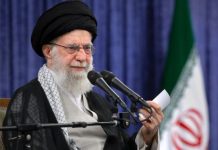Qamar Bashir
One of the biggest flaws in most Muslim societies, especially in Pakistan, is the selective and self-serving interpretation of Quranic injunctions, teachings, Sunnah, and Hadith. We have developed a habit of choosing verses from the Holy Quran and quoting Hadiths and Sunnah to suit specific occasions and events, only to forget them once those events are over. We tend to recite Quranic verses that align with our narrative and then disregard them once our objectives are achieved.
It doesn’t take a rocket scientist to understand that any system, way of life, political philosophy, agreement, or charter must be implemented fully and comprehensively; selective application defeats the very purpose of any agreement or charter.
Therefore, the impact of using Quranic verses, Hadith, or Sunnah will only have the intended effect when the entire Islamic System of Shariah is practiced in both letter and spirit. Selective use, outside the context of the Shariah system or a holistic Islamic framework, is counterproductive and detrimental to any society.
This selective approach may explain why not a single Islamic country, or even all Islamic countries collectively, has the courage, means, or resolve to leverage their power to put an end to the Israel’s genocide of Muslims in Palestine, Lebanon, or elsewhere, despite being surrounded by Muslim-majority countries.
Our selective use of Quranic verses and other religious authorities has also permeated our political ecosystem. All allied political parties are fully prepared and committed to bringing about constitutional changes to establish Constitutional Courts, arguing that the Charter of Democracy (CoD), signed on May 14, 2006, by the leaders of all political parties, including Pakistan’s two major political parties—the Pakistan Peoples Party (PPP), led by Benazir Bhutto, and the Pakistan Muslim League-Nawaz (PML-N), led by Nawaz Sharif—promised to do so.
Forgetting that the main thrust of the CoD was not the formation of a constitutional court but to allow democracy to flourish, enable democratic forces to take deep roots, end military intervention, ensure free and fair elections, uphold judicial independence, and above all, guarantee the supremacy of the Constitution while working towards a parliamentary system with checks and balances to prevent military interference in politics.
The most important and foremost point was a pledge to end military involvement in politics and curb the influence of intelligence agencies in civilian matters, ensuring that the armed forces remain subordinate to civilian authorities. This included abolishing the National Security Council (NSC), which had allowed military leaders to influence national security and foreign policy matters. The agreement emphasized ending the political role of intelligence agencies like the ISI and MI, ensuring that they operate strictly within their defined mandates.
The second and third most important points were ensuring an independent judiciary by reinstating judges who were removed unconstitutionally and making the process of judicial appointments more transparent, as well as ensuring free, fair, and transparent elections, with an independent and autonomous Election Commission to oversee the electoral process.
The third, fourth, and fifth important elements of the CoD called for strengthening the parliamentary system, empowering the parliament, and making the prime minister the chief executive, thereby reducing the power of the president. This was coupled with establishing a fair and transparent accountability mechanism to tackle corruption without political victimization, ensuring that accountability institutions operate independently, and a commitment to good governance, devolution of powers, reforms in public institutions, and respect for human rights, freedom of the press, and the rule of law.
The Charter of Democracy (CoD) also proposed the establishment of a Federal Constitutional Court in Pakistan to handle constitutional matters exclusively, ensuring the Supreme Court could focus on other judicial responsibilities. This court would comprise experienced judges who had previously served as chief justices or judges of the Supreme Court or High Courts, ensuring expertise in constitutional interpretation. The CoD emphasized a transparent and merit-based appointment process for these judges to maintain independence and prevent political interference. The aim was to strengthen judicial independence, uphold the Constitution’s supremacy, and create an impartial forum for constitutional issues, reflecting the broader goals of ensuring democratic values and a fair judicial system in Pakistan.
Finally, the signatory parties agreed to respect each other’s political mandate, avoid political victimization, and work together for the country’s democratic and economic development.
However, all sections of CoD have been trampled, disregarded, overlooked, and set aside, while only the part calling for the establishment of a Federal Constitutional Court has been selectively picked up and used as one of the most powerful arguments in favor of constitutional amendments. If these amendments are passed, they would defeat the main objectives of the CoD by selectively pushing for the establishment of the Constitutional Court, and re-endorsing the establishment’s role in politics, the executive, parliament, and the judiciary.
The Charter of Democracy (CoD) could have played a significant role in shaping Pakistan’s political landscape if it had been applied in a holistic manner. In its proper application CoD could have served as a roadmap for restoring democratic norms, particularly after military rule, by emphasizing the need for free and fair elections, an independent judiciary, and parliamentary supremacy.
It could have played a crucial role in curbing military interference in politics, reinforcing judicial independence and encouraging reforms and accountability mechanisms to promote good governance and transparency.
However, the CoD has also been subject to misuse, often diverging from its original intent. Political actors have selectively implemented its provisions to suit their immediate interests, ignoring key aspects such as reducing military influence and ensuring transparent elections.
Recently, parties have used the CoD’s call for a Federal Constitutional Court to justify constitutional amendments that undermine judicial independence, contrary to the CoD’s broader objectives. This selective approach has also reinforced political vendettas, marginalized parliamentary supremacy, and failed to establish truly independent accountability mechanisms, ultimately undermining the CoD’s vision of democratic stability, fair governance, and constitutional supremacy. This pattern reflects a tendency among political parties to prioritize short-term gains over the long-term goals of the CoD.
Qamar Bashir
Former Press Secretary to the President
Former Press Minister to the Embassy of Pakistan to France
Former MD, SRBC, CEO, ATV

















